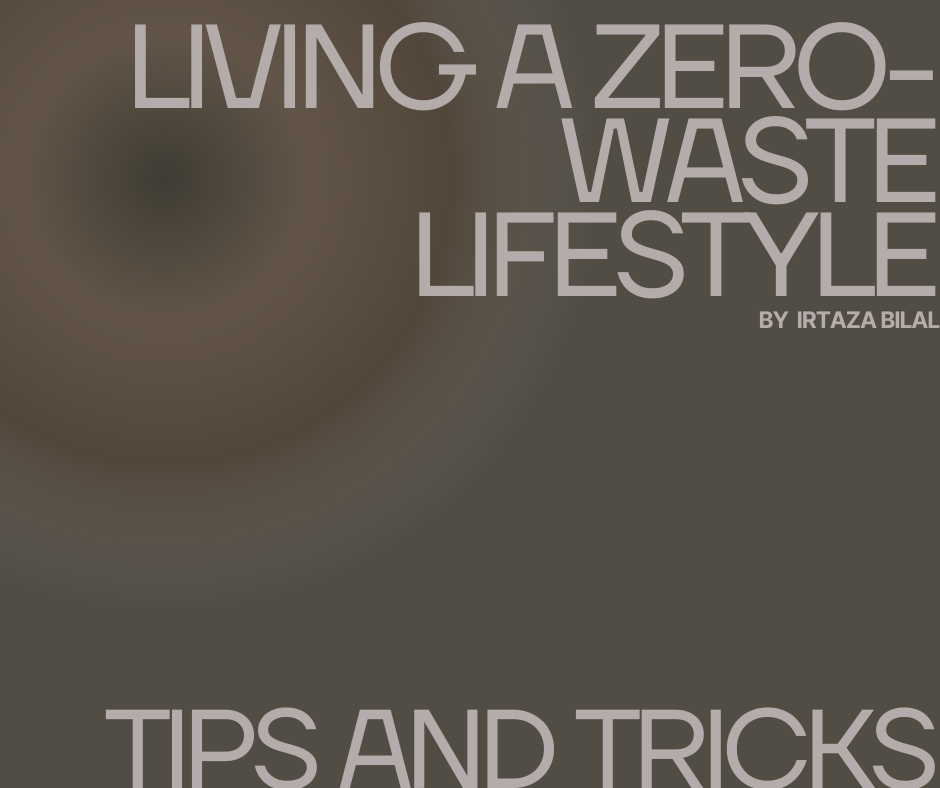In a world that often seems consumed by consumerism and waste, more and more people are embracing a zero-waste lifestyle as a way to reduce their environmental impact and live more sustainably. However, Going zero-waste isn’t just a trend; it’s a meaningful commitment to minimize waste generation. Here, we’ll explore what a zero-waste lifestyle is, why it’s important, and provide you with practical tips and tricks to get started on your own zero-waste journey.
#ZeroWaste #Sustainability #EcoFriendlyLiving
What is a Zero-Waste Lifestyle?
A zero-waste lifestyle is a philosophy that aims to send as little waste as possible to landfills or incinerators. The goal is to reduce, reuse, and recycle to the point where your household produces little to no waste. Similarly, It’s not about achieving perfection but rather about making conscious choices that minimize your impact on the environment.
Why is it Important?
- Reduction of Landfill Waste: The less waste we send to landfills, the less strain we put on our environment. Therefore, Landfills release harmful greenhouse gases and can contaminate nearby soil and water sources.
- Conservation of Resources: Producing goods generates a significant amount of waste and consumes precious resources. Moreover, By reducing waste, we reduce the demand for new resources.
- Energy Savings: Manufacturing and transporting products require energy. When we buy less and use what we have, we indirectly reduce our carbon footprint.
- Protecting Wildlife: Reducing waste helps protect wildlife by minimizing the pollution and habitat destruction associated with waste disposal.
Practical Tips and Tricks for a Zero-Waste Lifestyle:
- Start Small: Transitioning to zero waste can be overwhelming, so begin with one aspect of your life, like reducing plastic waste or food waste.
- Use Reusable Bags and Containers: Invest in reusable shopping bags, produce bags, and food storage containers to replace disposable options.
- Shop in Bulk: Buy items like grains, pasta, and spices from bulk bins using your own containers to reduce packaging waste.
- Say No to Single-Use Plastics: Avoid single-use plastics like straws, utensils, and water bottles. Additionally, Opt for reusable alternatives made of stainless steel, glass, or bamboo.
- Compost: Set up a composting system for food scraps and yard waste to reduce what you send to the landfill.
- Choose Reusable Hygiene Products: Consider using reusable menstrual products, such as menstrual cups or cloth pads, and bamboo toothbrushes.
- Repair and Repurpose: Instead of throwing away broken items, repair or repurpose them to extend their lifespan.
- Embrace Second-Hand Shopping: Thrift stores and online marketplaces offer a treasure trove of gently used items, reducing the demand for new products.
- Reduce Food Waste: Plan meals, store food properly, and use leftovers creatively to reduce food waste.
- DIY Household Products: Make your own cleaning supplies, personal care products, and even cosmetics to reduce packaging and harmful chemicals.
- Educate Yourself: Stay informed about recycling rules and local sustainability initiatives to make better waste reduction choices.
- Share Your Journey: Engage with your community and social networks to inspire and learn from others on the same journey.
#ReduceReuseRecycle #WasteLessLiveMore #ZeroWasteJourney
Conclusion
Living a zero-waste lifestyle is an attainable goal for anyone willing to make small, meaningful changes in their daily routines. Remember that progress is more important than perfection. Every effort you make to reduce waste contributes to a healthier planet and a brighter future for all living creatures. Therefore, By following these tips and tricks, you can embark on your own zero-waste journey and inspire others to join you in making a positive impact on the environment.
So, are you ready to take the first step towards a zero-waste lifestyle? Together, we can make a difference.

